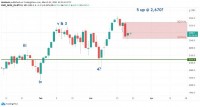|
Opalesque Industry Update - Gibson, Dunn & Crutcher LLP, an international law firm, filed an opening brief in the U.S. Court of Appeals for the Fifth Circuit challenging the new rule adopted by the U.S. Securities and Exchange Commission (SEC) regulating private fund advisers. This was done on behalf of the National Association of Private Fund Managers, Alternative Investment Management Association Ltd., American Investment Council, Loan Syndications and Trading Association, Managed Funds Association, and National Venture Capital Association. As the brief explains, this case is about an unprecedented and unlawful intrusion by the SEC into business relationships among private parties that has been undertaken without any Congressional authority. The SEC adopted a sweeping rule that unlawfully restricts-or even prohibits-the longstanding, widely used business arrangements of private funds and their investors, and in doing so needlessly undermines an industry that has been exceptionally successful for the investors it serves. In the brief, the petitioners request that the rule be vacated based on their arguments that, among other things:
• The new rule exceeds the SEC's statutory authority by attempting to regulate the terms of the relationship between private funds (which are specifically exempt from such regulation) and their investors; The brief emphasizes that Congress intended for private funds to be regulated differently than funds available to retail customers and never gave the SEC the authority to intervene, as here, in the private funds market. Unlike retail investment products open to all investors, private funds are only available to experienced, sophisticated investors. As the brief explains: This case concerns "private funds"-pooled investment vehicles that are not offered to the public. Unlike more familiar pooled investment vehicles, like mutual funds, private funds are generally not accessible to non-professional investors (known as retail customers). Instead, they serve some of the world's most sophisticated investors. Because private funds serve large, predominately institutional, investors capable of protecting their own interests, Congress deliberately exempted them from the prescriptive regulatory regime applicable to publicly offered investment vehicles. The brief argues that Congress intended the Investment Advisers Act of 1940 to govern, in limited ways, the relationship between the investment adviser and the fund. However, the SEC has upset Congress's plan by broadly regulating the relationship between the adviser and the investor. The Commission. . . subverted Congress's plan.... [The] Commission said, to level the playing field among private-fund investors, its Rule must address the "indirect[]" relationship between the adviser and "investors in [the] fund[]." That is a blatant subversion of the congressional design: Congress decided to regulate private-fund advisers as "investment adviser[s]," and that this advisory relationship includes only the "direct[]" relationship between an adviser and its fund client. The brief also argues that the SEC did not give adequate reasons for the rule. Beneficiaries-such as pension funds and universities-rely on the returns generated from private funds and see them as important portfolio diversifiers. Imposing immense costs without adequate reasons or an assessment of benefits will upend a thriving market: The Commission cannot "articulate a satisfactory explanation" for the rule. It said it must impose billions of dollars in costs, and commandeer millions of hours in employee time, to prevent "problematic practices" the Commission has supposedly "observed." But the Commission failed to provide any "evidence of a real problem." The Court should vacate the Rule for that reason alone: "Professing that an order ameliorates a real industry problem but then citing no evidence demonstrating that there is in fact an industry problem is not reasoned decision making." The petitioners are represented by Eugene Scalia and Helgi Walker of Gibson, Dunn & Crutcher LLP. Press release (Bg) Article source - Opalesque is not responsible for the content of external internet sites |
Industry Updates
Law firm files opening brief in lawsuit against the SEC to vacate the Private Fund Adviser Rule
Friday, November 03, 2023
|
|





 RSS
RSS








